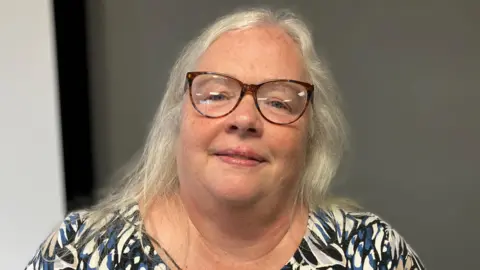SEND funding debate 'will bring fear and anxiety'
 BBC
BBCFamilies whose children have Education, Health and Care Plans (EHCPs) fear the government may be considering plans to scrap them, a charity has warned.
There has been a sharp rise in recent years in the number of pupils with EHCPs, putting local authorities under financial strain.
Pupils with an EHCP are legally entitled to receive additional support if they have learning disabilities or face social, emotional or mental health challenges.
A Department for Education spokesperson said it would be "totally inaccurate to suggest that children, families and schools might experience any loss of funding or support".
'Respite'
Jane Johnson's 17-year-old son has had an ECHP since he was at primary school.
She said it enabled his move into special education.
Ms Johnson, from Oldham, said: "It was when he was in year one that we first noticed a major difference.
"He couldn't cope with the large class sizes and it led to unwanted behaviours which would have led to exclusion."
In a recent letter published in The Guardian newspaper, several charities and academics warned that, without EHCPs in mainstream schools, "many thousands of children risk being denied vital provision or losing access to education altogether".
Ms Johnson said her son's EHCP afforded him the security of knowing he could stay in school.
"You've got a little bit of respite with an ECHP," she explained. "You're not as worried that they might get excluded tomorrow and without that, you're right back to square one with that worry every day."
'Steep rise'
More than 482,000 children and young people in England have an EHCP.
In the north-west of England alone, there are now more than 73,000 EHCPs - more than double the 32,000 recorded in 2016.
The Greater Manchester borough of Tameside has seen a fourfold increase while Halton in Cheshire has recorded a threefold rise.
The rise has been driven by several factors in recent years, according to the Institute for Fiscal Studies.
The independent think tank pointed to a steep rise in the number of children and young people diagnosed with autistic spectrum disorder conditions.
It also said more young people have speech and language problems while the number of students with social, emotional and mental health needs has also increased.

Point is an Oldham-based charity which supports more than 4,000 families who have children with special educational needs and disabilities (SEND).
Manager Andrea Greenhead said many families had been left unsettled by speculation in the media about the future of EHCPs.
She said: "Headlines saying that EHCPs are going to be taken away from children in the mainstream setting will bring fear and anxiety and a cause for concern.
"What families really need is the detail that sits behind it and a family and parent voice incorporated into the plans because the lived experience that families have are really crucial."
'Complex area'
Many local authorities are struggling to afford the additional transport costs that are often associated with EHCPs.
Knowsley Council's bill has increased from about £2m to nearly £8m, while local authorities covering Stockport, Halton, Manchester and Trafford have also seen sharp rises.
Most of the money is spent on providing EHCP recipients with taxis to and from school.
Halton's taxi bill has gone up more than fourfold in a decade, while Warrington has seen a 270% rise during that same period, from £1.25m to £4.63m.
The government said it inherited a system "left on its knees".
When asked if she could scrap EHCPs, Education Secretary Bridget Phillipson described it as a "complex and sensitive area".
Full details of the proposed changes to SEND provision are due to be announced in October.
A Department for Education spokesperson said: "We have been clear that there are no plans to abolish SEND tribunals, or to remove funding or support from children, families and schools."
Read more stories from Cheshire, Lancashire, Greater Manchester and Merseyside on the BBC, watch BBC North West Tonight on BBC iPlayer and follow BBC North West on X.
